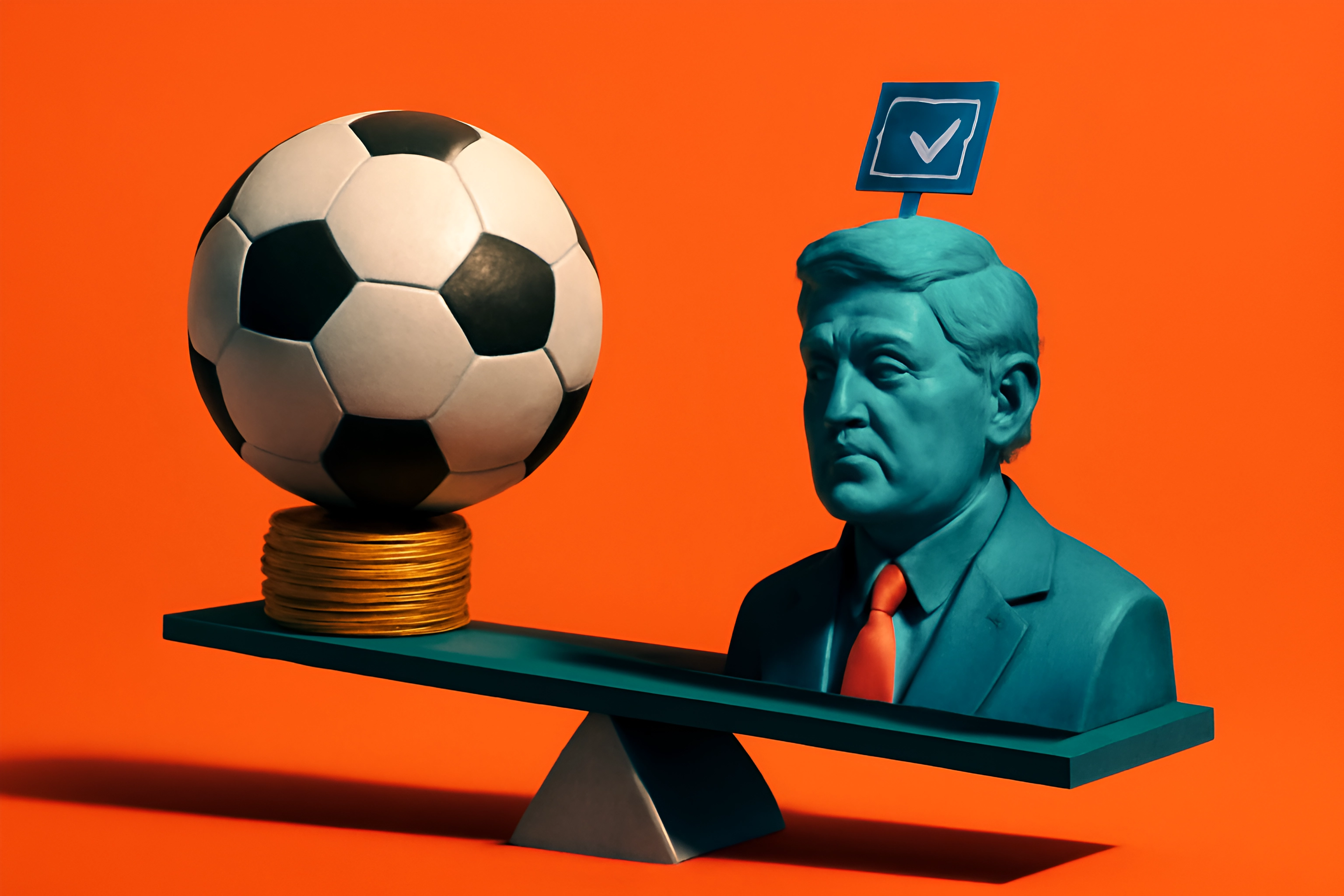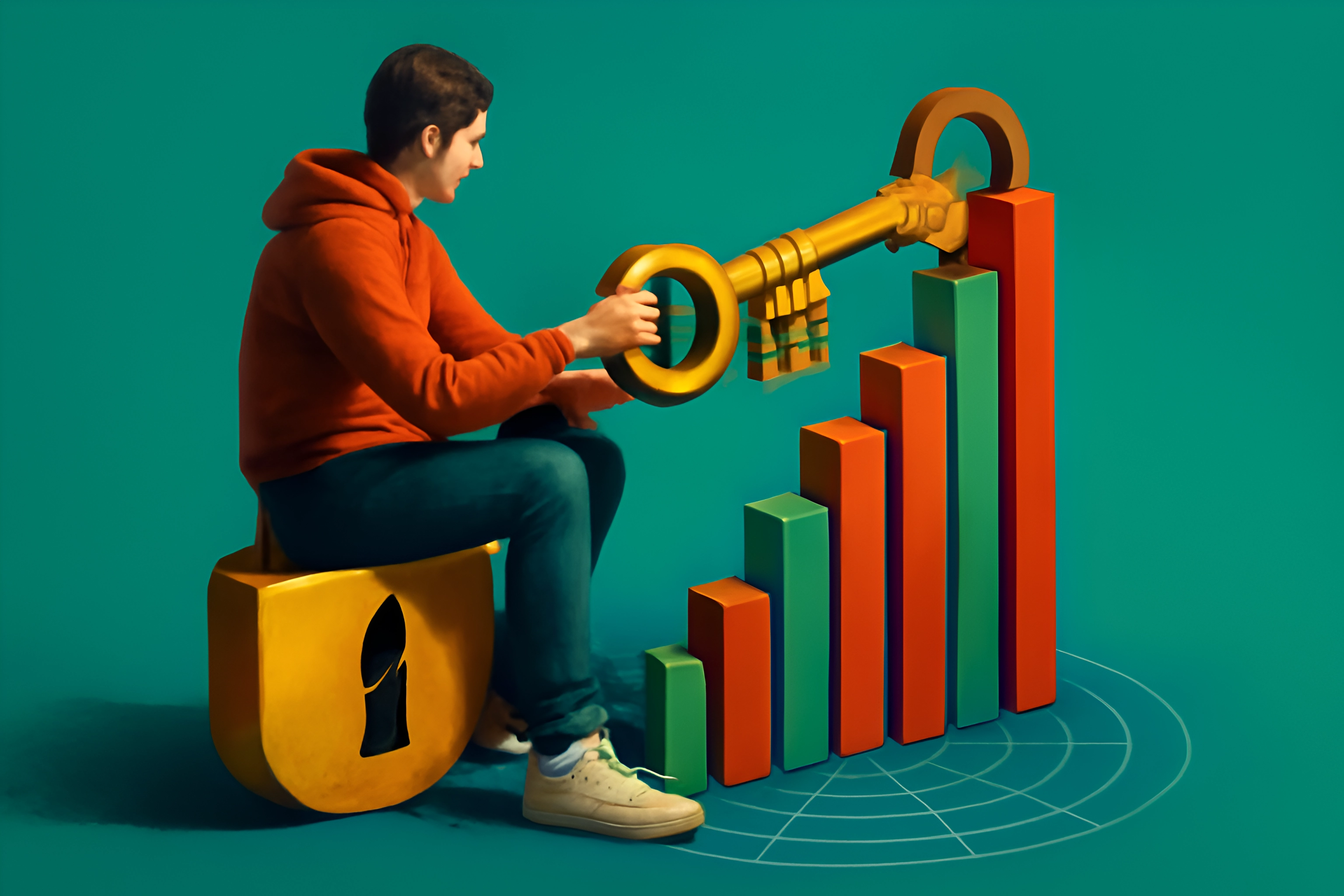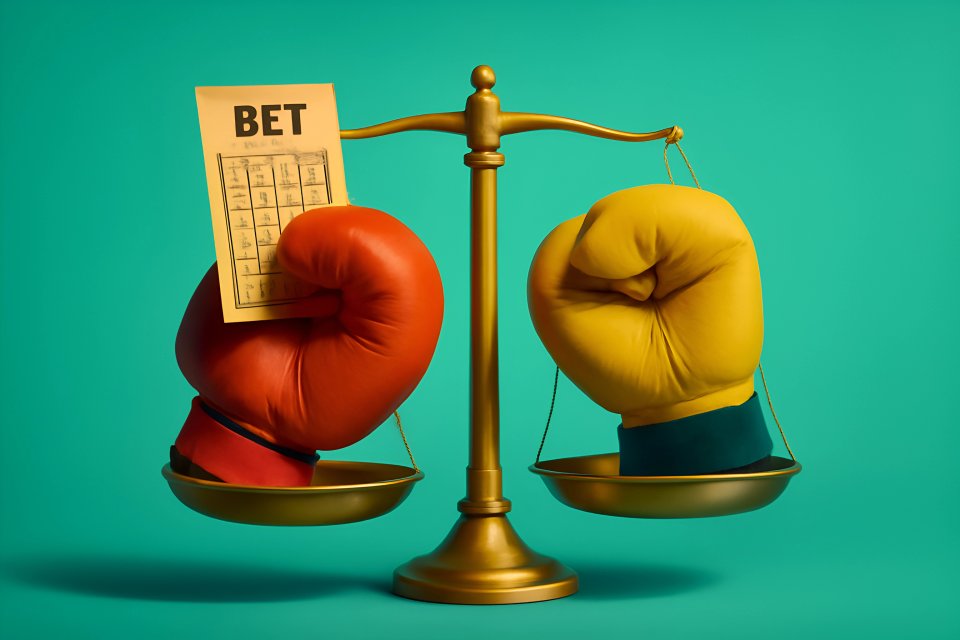
The roar of the crowd, the thrill of a last-second victory – this is the world most bettors know. But what if your analytical mind, honed on point spreads and player stats, could conquer entirely new territory? Imagine a landscape where the stakes are just as high, the strategies just as nuanced, but the playing field shifts from the stadium to the very corridors of power. The world of betting is evolving, and a fascinating frontier is opening up: political betting. While sports betting remains the familiar giant, a growing number of sharp minds are turning their attention to the unpredictable, yet potentially lucrative, realm of political outcomes. This post will dissect the core differences and similarities between sports betting vs political betting, focusing on crucial market dynamics in betting, information flow, risk factors, and strategic approaches. By understanding these distinct wagering environments, you gain powerful insights, potentially diversifying your betting portfolio and applying your hard-earned analytical skills to new, exciting domains. Are you ready to look beyond the scoreboard?
Understanding the Playing Fields
To truly grasp the nuances between these two betting worlds, we must first understand the ground rules of each. One is a well-trodden path, paved with decades of data; the other, a newer, more unpredictable terrain. Knowing their fundamental characteristics is the first step to mastering either – or both.
Sports Betting: The Established Arena
Sports betting markets are the bedrock of the wagering world, defined by a relentless deluge of data and a high frequency of events. Think about it: every game, every play, every player contributes to a vast ocean of statistics. According to recent figures, the U.S. sports betting market alone generated an astounding $14.3 billion in revenue in 2024, a testament to its widespread appeal and the sheer volume of activity. This isn't surprising when you consider that nearly 30% of Americans placed a wager on football in the same year, as reported by Statista.
The key characteristics that define sports betting markets, especially when comparing them to political betting, are clear. There's an unparalleled availability of statistical data and performance metrics, from historical scores to intricate player analytics. Events occur with high frequency – daily or weekly games across numerous leagues – providing constant opportunities and rapid feedback for bettors. For major sports, this leads to established odds-making processes and highly liquid markets, where significant sums can be wagered without drastically shifting the lines. Furthermore, the outcomes are heavily influenced by tangible, often measurable factors: player injuries, team form, coaching changes, and even weather conditions. These elements provide a somewhat predictable, data-rich environment for those skilled in statistical analysis and value identification.
The global sports betting market is projected to reach a staggering $265.5 billion by 2034, according to FactMr, underscoring its massive scale and established nature. Even with sophisticated algorithms, information asymmetry can still exist; astute bettors sometimes gain an edge by reacting faster to critical news, like a surprise injury, than bookmakers can adjust their odds, a phenomenon observed in NFL markets as detailed in research available on SSRN. This dynamic creates a continuous challenge, a game of cat and mouse between oddsmakers and sharp bettors, all played out on a field rich with quantifiable data.
Political Betting: The Emerging Frontier
Now, shift your focus from the roaring stadium to the hushed rooms where political destinies are decided. Political betting markets operate on a different rhythm, defined less by hard statistics and more by the shifting sands of public opinion, pivotal campaign events, and often much longer timelines. Instead of daily games, you're looking at cornerstone events – elections, referendums, leadership contests – that can be months, even years, in the making. The information diet here consists primarily of polls, media narratives, and expert commentary, each with its own inherent biases and potential for inaccuracy.
The characteristics that set political betting apart are striking. While sports rely on performance data, political markets hinge on public sentiment, the impact of scandals, and the persuasive power of debate performances. These are often intangible factors, harder to quantify but immensely powerful in shaping outcomes. Market liquidity in political betting tends to concentrate around major events; for instance, the 2024 U.S. presidential election saw prediction markets like Polymarket handle billions in wagers, with CoinDesk reporting $2.5 billion wagered on that platform alone for the election. However, outside these peak periods or for less prominent political contests, markets can be significantly thinner.
The influence of unpredictable events, often dubbed "October surprises," can cause dramatic shifts in political odds, far more volatile than a typical injury report in sports. Consider the wild swings in Donald Trump's 2024 odds following an assassination attempt, a stark example of how real-world events can convulse these markets, as noted in analysis by the St. Louis Fed. This emerging frontier offers a different kind of intellectual challenge, one that rewards media literacy, an understanding of psychological drivers, and the ability to see through the noise of often-conflicting narratives. It's a domain where understanding alternative betting strategies becomes paramount.
Head-to-Head: Key Differences in Market Dynamics
When you place sports betting and political betting side-by-side, the contrasts in their market dynamics in betting become incredibly stark. It's not just about betting on a game versus an election; it's about navigating fundamentally different ecosystems of information, time, and human behavior. Understanding these differences is your key to unlocking potential in either arena.
Information Flow & Asymmetry
Information is the lifeblood of any betting decision. But how you get it, and how reliable it is, varies wildly. In sports, you're swimming in data: player stats, historical performance, injury reports, even weather forecasts. Expert analysis is plentiful. Yet, as highlighted by research on SSRN, even here, "inside information" like a last-minute injury not yet public can create temporary information asymmetry, giving a fleeting edge to those in the know.
Politics, however, plays by different rules. Polls are a primary data source, but they come with significant caveats: margins of error, sample biases, and the infamous "shy voter" effect that led to notable misses in 2016 and 2020, as discussed by Big Data Wire. Media narratives wield enormous influence, shaping public perception and, consequently, betting odds. Then there's the ever-present threat of "October surprises" or strategically controlled information releases designed to sway opinion at critical junctures. The reliability of information is a constant question, demanding a more critical, almost investigative approach from the bettor.
The dissemination of information also differs. Sports news is often instantaneous and widely broadcast. Political information can be more fragmented, sometimes filtered through partisan lenses, making it crucial to consult diverse sources and understand how prediction markets often aggregate information more efficiently than traditional polling, a point made by The Punter's Page.
Event Frequency & Duration
Think about the rhythm of your betting. Sports offer a constant stream of events: daily NBA games, weekly NFL matchups, ongoing tennis tournaments. This high frequency allows for rapid turnover of capital and quick feedback on your strategies. You can test a hypothesis on Monday and know the result by Tuesday.
Political betting operates on a much grander, slower timescale. Major elections happen every few years, referendums sporadically. Betting cycles are long, and your capital can be tied up for months, even years, awaiting an outcome. This has profound implications for bankroll management, requiring a different level of patience and a longer-term perspective, a stark contrast to the often immediate gratification (or disappointment) of sports wagers. The extended duration also means your bet is exposed to many more potential intervening variables over time.
This difference in tempo impacts not just your finances but also your research process. Sports bettors might focus on recent form and upcoming matchups. Political bettors must track evolving narratives, demographic shifts, and policy debates over extended periods, making it a marathon, not a sprint.
Odds Setting & Volatility
How do odds come to be, and how wildly do they swing? In major sports markets, odds are typically set by sophisticated algorithms and adjusted based on betting volume, team news, and ongoing performance data. While they move, especially in response to significant news like a star player's injury, they tend to be relatively stable for major, liquid markets. The market efficiently prices in most known information.
Political odds, on the other hand, are a different beast – often far more volatile. They are heavily influenced by polling data (which, as we've seen, can be flawed), major news events, and debate performances. A single gaffe, a surprising poll, or a geopolitical event can send odds into a tailspin or a rocket launch. The St. Louis Fed's analysis of market reactions around elections illustrates this heightened sensitivity. This volatility can mean greater risk, but also greater opportunity for those who can anticipate or react swiftly to sharp market movements.
Consider the difference: a key player injury in a major sports league might shift odds by a few percentage points. A political scandal or a surprisingly strong debate performance can see a candidate's odds double or halve overnight. This inherent instability is a core feature of political betting markets.
Market Liquidity & Depth
Liquidity – the ability to place large bets without significantly moving the price – is a crucial factor for serious bettors. Major sports leagues like the NFL or the English Premier League boast incredibly deep and liquid markets. Millions can be wagered on a single game, and you'll find a vast array of bet types, from simple moneyline bets to complex player props, as seen in our guide to sports betting vs prop betting.
Political betting markets, while growing, often tell a different story. Liquidity tends to be concentrated around the biggest events, like presidential elections. For these, markets can become quite deep as the event nears. However, for smaller elections, primaries, or more niche political propositions, markets can be much thinner. This means it might be harder to get large bets down, and your own wagers could have a more noticeable impact on the odds. The variety of standardized bet types is also generally more limited, often focusing on outright winners.
This disparity in liquidity and depth means that strategies effective in high-volume sports markets might need adjustment for the sometimes shallower waters of political betting. Finding value might be easier in less efficient, thinner markets, but executing large positions can be a challenge.
The "Human Element" vs. Statistical Purity
While athletes are human and subject to off days or surprising performances, sports betting allows for a significant degree of statistical modeling. Past performance, player metrics, and team statistics provide a rich quantitative base for predictions. You can analyze a pitcher's ERA, a quarterback's completion percentage, or a team's defensive efficiency with a high degree of confidence in the data's relevance.
Politics, however, is profoundly, almost purely, about the human element. It's driven by voter psychology, candidate charisma (or lack thereof), public sentiment, trust, fear, and hope. These are notoriously difficult to quantify accurately. While polls attempt to capture sentiment, they are snapshots, not definitive predictors of complex human behavior on election day. The "shy voter" phenomenon, where individuals are reluctant to admit their true voting intentions to pollsters, is a classic example of how the human element can confound statistical models.
This makes political betting less about statistical purity and more about understanding human psychology, media influence, and societal trends. It's a realm where qualitative analysis often trumps purely quantitative approaches, a key differentiator when considering sports betting vs political betting.
Regulatory Landscape & Availability
Want to bet on sports? In an increasing number of jurisdictions, it's becoming easier than ever. The regulatory landscape for sports betting has seen significant liberalization, particularly in the United States, where state after state has legalized and regulated the activity. This has led to a proliferation of licensed sportsbooks, both online and retail, making it widely accessible. According to Immunize Nevada's state-by-state analysis, 38 U.S. states had legalized sports betting by 2024.
Political betting, however, often operates in a more ambiguous regulatory space. Its availability varies dramatically by jurisdiction. Some countries have a long tradition of regulated political betting, while in others, like the U.S., it faces significant hurdles. The Commodity Futures Trading Commission (CFTC) has historically taken a dim view of event contracts based on political outcomes, proposing rules to limit them, as reported by Global Relay. This often pushes political betting onto specialized prediction markets or exchanges, some of which operate in regulatory grey areas or utilize cryptocurrencies to bypass traditional financial systems.
This difference in regulation and availability means that accessing political betting markets might require more effort and navigating a less certain legal environment compared to the increasingly mainstream world of sports wagering.
Here's a quick comparison:
| Feature | Sports Betting | Political Betting |
|---|---|---|
| Primary Data | Statistics, Performance Metrics, Injury Reports | Polls, Media Narratives, Expert Commentary, Scandals |
| Event Frequency | High (Daily/Weekly Games) | Low (Cyclical Elections, Referendums) |
| Odds Volatility | Generally Moderate (for major markets) | Potentially High (sensitive to news, polls, debates) |
| Information Flow | Widely available, transparent data, some asymmetry | Polls (biases), media influence, "October surprises" |
| Key Skill Set | Quantitative analysis, statistical modeling | Qualitative analysis, media literacy, psychological insight |
| Regulation | Increasingly regulated, widely available | Varies by jurisdiction, often in grey areas or specialized platforms |
| Capital Lock-in | Short-term | Potentially Long-term (months/years) |
Strategic Approaches: Tailoring Your Betting Game
So, you understand the battlegrounds. Now, how do you fight on them? The skills that make you a winner in sports betting aren't useless in the political arena, but they need adaptation. And political betting demands its own unique set of strategic tools.
Leveraging Sports Betting Skills in Political Markets
Your analytical mind, honed from years of dissecting sports matchups, is a powerful asset. The ability to identify value, to look at odds and see not just a price but a probability, is universal. If you can spot an undervalued underdog in the NFL, you can learn to spot a mispriced candidate in an election. The core principles of mastering advanced betting strategies through sports analytics can be surprisingly transferable.
Bankroll management, the cornerstone of any successful betting endeavor, is just as crucial in politics, though the timelines differ. Instead of allocating a percentage of your bankroll per game, you might allocate it per election cycle or per major political event. The discipline to stick to your staking plan, to avoid chasing losses, and to manage risk – these are universal truths. Understanding market sentiment, a key skill in sports (e.g., "public teams" being overbet), also translates; political markets are heavily driven by sentiment, and being able to gauge it, or bet against it when it's irrational, can be profitable.
Furthermore, the use of data-driven sports betting tools to enhance your analytical capabilities in sports can inspire a similar approach to political data, albeit with different datasets. The mindset of looking for an edge, of questioning conventional wisdom, and of rigorous research will serve you well, no matter the market.
Unique Strategies for Political Betting
While some sports betting skills translate, political betting demands its own specialized playbook. Forget point spreads; here, you're dissecting polling methodologies. Critical poll analysis is paramount: understanding sample sizes, likely voter screens, question wording, and the historical biases of different polling firms (e.g., some consistently lean towards one party). This isn't just reading headlines; it's deconstructing the data beneath them.
Media literacy is another non-negotiable skill. You must learn to identify narrative influence, to understand how media coverage shapes perception and moves markets, often independently of underlying facts. Distinguishing between genuine shifts in public opinion and media-driven hype is crucial. Long-term versus short-term event betting also comes into play: are you betting on a primary winner months out, or on the final election day outcome? Each requires a different risk assessment and information focus.
Understanding demographic trends and voter behavior is like scouting teams in sports. Which demographics are energized? Which are apathetic? How do different groups historically vote, and are there signs of shifts? Finally, "niche knowledge" can be incredibly valuable. A deep understanding of a specific country's political system, a particular region's dynamics, or the intricacies of a certain type of election (e.g., parliamentary vs. presidential) can provide a significant edge, much like specializing in mastering niche sports betting markets.
Key Considerations for Alternative Betting Strategies
When venturing into political markets as an alternative to sports, patience is more than a virtue; it's a necessity. Outcomes unfold over months or years, not hours or days. This requires a different psychological makeup and a longer investment horizon. Your research methodologies will also need to adapt. While sports offer structured data, political research involves sifting through news articles, opinion pieces, academic studies, and social media trends – a more qualitative and often messier process.
Diversification is a common theme when exploring alternatives, and political betting can be part of that, but it's not a simple plug-and-play addition. It requires a genuine commitment to understanding its unique dynamics. You're not just looking for alternative betting strategies; you're looking to master an entirely new discipline. This intellectual curiosity and willingness to learn are as important as any analytical skill. Consider it akin to exploring sports betting vs virtual sports betting or sports betting vs peer-to-peer betting; each alternative has its own distinct ecosystem.
Risk Factors and Opportunities
Every betting market has its own set of landmines and treasure chests. Understanding the specific risks and unique opportunities in both sports and political betting is crucial for navigating these waters successfully and protecting your capital. It's about making informed choices, not just hopeful punts.
Unique Risks in Political Betting
The world of political betting is fraught with unique perils that can catch the unwary bettor off guard. Poll inaccuracies are a major one; the "shy voter" effect or flawed methodologies can lead to significant polling misses, as seen in several recent major elections where polls underestimated support for certain candidates by several percentage points, according to Big Data Wire. Sudden, unpredictable events – scandals, gaffes, health crises, even international incidents – can drastically shift odds almost instantaneously, leaving little time to react.
The longer lock-in of capital is another risk. Money wagered on an election outcome might be tied up for many months, or even years, reducing your liquidity and ability to react to other opportunities. Furthermore, the political sphere is particularly susceptible to information manipulation or the impact of "fake news," which can temporarily distort market perceptions and prices. Unlike the relatively transparent data in sports, discerning truth from fiction in political narratives requires constant vigilance.
Unique Risks in Sports Betting (for context)
While often seen as more data-driven, sports betting is not without its own specific risks. Unexpected injuries to key players can completely derail a team's chances and your bets. The inherent variance in sports means that upsets happen; the statistically superior team doesn't always win, and short-term luck can play a significant role.
Over-reliance on flawed models is another pitfall. If your statistical model doesn't account for crucial variables, or if it's overfitted to past data, it can lead to consistently poor predictions. Even the most sophisticated algorithms can't predict every bounce of the ball or every refereeing decision. These are the familiar demons that sports bettors constantly battle.
Opportunities in Political Betting
Despite the risks, political betting offers compelling opportunities, especially for those willing to do their homework. Because these markets can sometimes be less efficient than hyper-competitive major sports markets, there's potential for finding significant value if you possess a genuine informational edge or a superior analytical framework for interpreting political events and sentiment. For example, identifying a candidate whose odds haven't yet caught up to their growing grassroots support could yield substantial returns.
Markets can sometimes be slower to react to nuanced developments compared to sports markets, where information is priced in almost instantly. This lag can create windows of opportunity. Moreover, political betting offers immense intellectual stimulation and a way to engage deeply with current events. For many, the appeal isn't just financial; it's about testing their understanding of the world. Finally, for those looking at betting diversification, political markets offer a genuinely different risk/reward profile compared to sports or even sports betting vs casino betting, potentially smoothing out overall portfolio volatility.
Which Market is Right for You?
The allure of a new challenge, the promise of untapped profits – it's tempting. But before you dive headfirst into political betting or even re-evaluate your sports betting approach, ask yourself some hard questions. This isn't about which market is "better"; it's about which market aligns with your strengths, your temperament, and your goals.
What are your analytical strengths? Are you a quantitative wizard who thrives on spreadsheets, statistical models, and hard data? If so, the data-rich environment of sports betting might be your natural habitat. Or are you more adept at qualitative analysis, understanding narratives, dissecting human psychology, and reading between the lines of media reports? This skill set might give you an edge in the more nuanced world of political betting.
Consider your risk tolerance and time horizon. Can you stomach the high volatility and potential for sharp, sudden swings in political markets? Are you comfortable having your capital tied up for months or even years? Or do you prefer the faster pace and more frequent feedback loops of sports betting, where outcomes are decided daily or weekly? How much time are you genuinely willing to dedicate to research in each domain? Both require significant effort to master, but the type of research differs vastly.
What kind of information do you enjoy processing? Do you get a thrill from deep-diving into player performance metrics and injury reports? Or are you fascinated by polling trends, geopolitical analysis, and the study of voter behavior? Your passion will fuel your persistence. It's also crucial to remember that this doesn't have to be an "either/or" decision. Many discerning bettors find enjoyment and success in both arenas, applying different facets of their analytical toolkit to each. And, of course, responsible gambling principles – setting limits, betting only what you can afford to lose, and never chasing losses – are paramount, regardless of whether you're betting on the Super Bowl or a presidential election.
Conclusion
The worlds of sports betting vs political betting offer distinct landscapes, each with its own unique challenges, rewards, and market dynamics in betting. One is built on the quantifiable performance of athletes and teams, the other on the shifting tides of public opinion and political maneuvering. Neither is inherently superior, but understanding their fundamental differences is the absolute key to developing effective alternative betting strategies and navigating these complex markets with confidence.
The analytical skills honed in one arena can often be adapted to the other, but success demands a tailored approach, a deep understanding of specific information flows, risk profiles, and event cycles. With the right mindset, a commitment to rigorous research, and a disciplined strategy, analytical bettors can indeed explore political markets as a compelling way to diversify their activities and apply their intellect to new and fascinating challenges. Both markets, in their own way, offer a profound intellectual engagement, a chance to test your theories against real-world outcomes.
What are your thoughts on sports betting vs political betting? Have you ventured into political markets, or are you considering it? Share your experiences or questions in the comments below! Or, to further sharpen your edge, explore more of our Betting Strategy guides.















